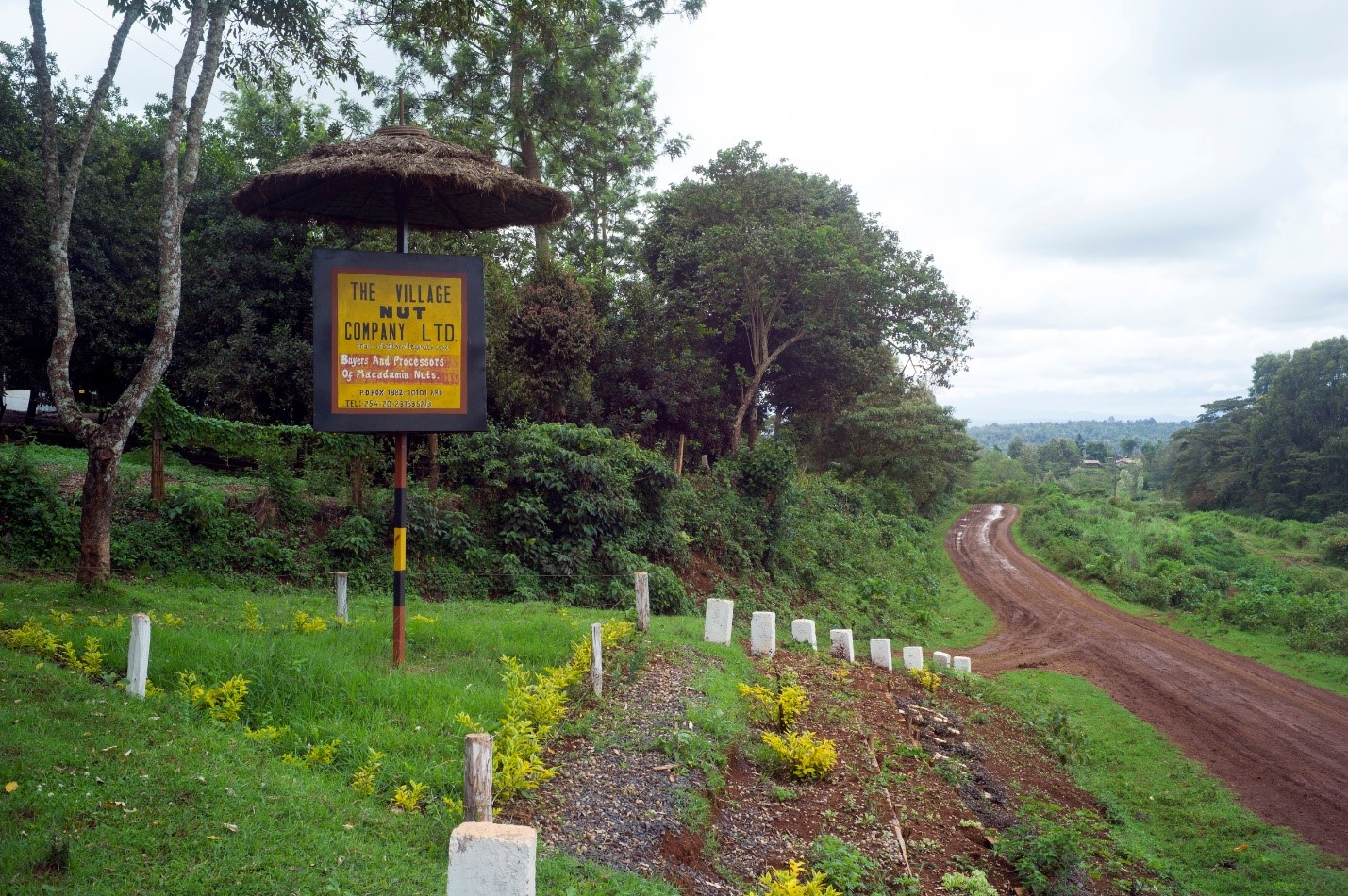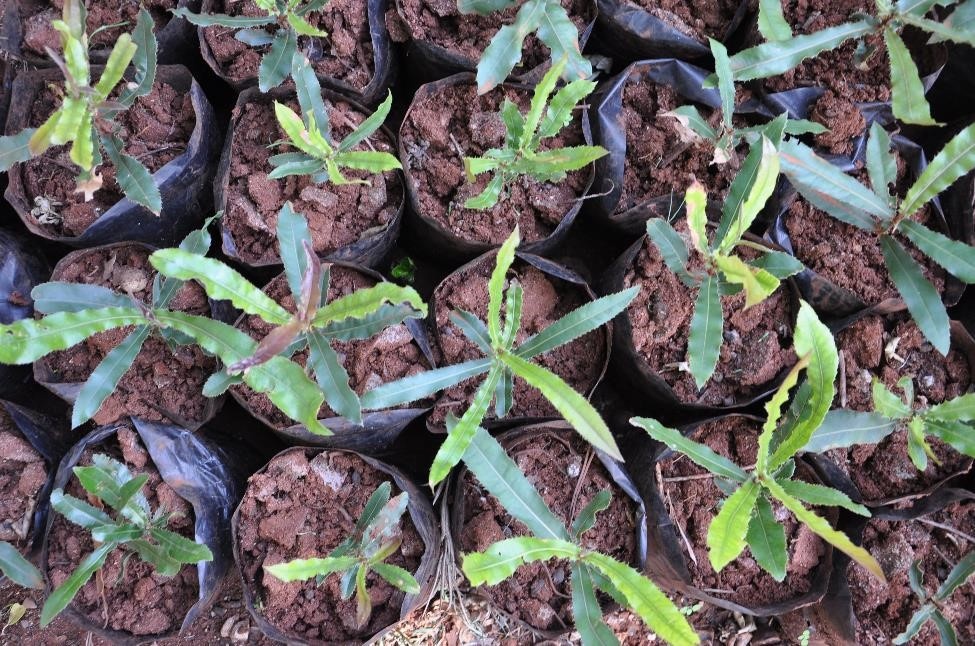

The annual macadamia harvest is now underway in Kenya, and The Village Nut Company’s hilltop factory in Nyeri County is buzzing with activity. As farmers deliver their crop and employees carefully hand-sort the finest nuts, the Muhara siblings are busy mentoring the next generation of agricultural entrepreneurs, fulfilling a promise they made years ago.
“This is where the cows used to graze,” explained Mary Muhara as she stood in the middle of their state-of-the-art facility that today processes high-quality macadamia nuts for international markets.
Located near the town of Karatina and in the shadow of Mount Kenya, The Village Nut Company sits immediately next to the house where Mary and her siblings–Johnson, Maina, and Ann–grew up. The buildings are surrounded by well-manicured gardens and shaded by the macadamia trees planted decades ago by their father, who now sits at the factory gate and observes the comings and goings of delivery trucks.
Established in 2013, this family-owned business got its start soon after their mother passed away. “She was a local leader in the village and participated in nearly every committee,” said Mary. “One of the things she always told us was to take care of the youth in our community.”
So rather than establishing their business in Nairobi, they returned to their rural childhood home two hours north. Here, they are continuing their mother’s legacy of supporting the local community and providing meaningful economic opportunities for its young people. From machine operators and trainers to quality control specialists and sorters, the company provides employment to nearly 100 individuals. Most are young people, especially young women, in their twenties and early thirties. For many, this is their first formal job.

But today, most young people do not see viable career pathways in agriculture. As a result, far too many members of the next generation are permanently leaving rural areas and migrating to urban centers, like Nairobi, in search of other opportunities.
Because Kenya’s agricultural sector accounts for nearly a third of its GDP and employs roughly 75 percent of the population, this is more than a minor demographic dilemma; it’s about national competitiveness and long-term economic growth for a country with the highest youth unemployment rate in East Africa. Recognizing this, Kenya’s Agriculture Cabinet Secretary recently proposed the possibility of making agriculture a compulsory subject in primary and secondary schools.
Agriculture will only be an attractive career to the extent that it offers dynamic, creative and prosperous opportunities for young people. Thankfully, the complexity of agricultural supply chains—combined with the rising demand for food and a finite supply of natural resources—means that opportunities for creativity and entrepreneurial innovation are endless.
Indeed, by looking beyond a narrow focus on farming, there are countless ways in which young people can help transform one of the world’s oldest industries. In Africa alone, the value of the food and beverage market has the potential to triple, reaching $1 trillion by 2030, according to the World Bank. Consider the production, processing, packaging, logistics and technology jobs that come with this.
With a vision for The Village Nut Company to become the leading macadamia nut processor in Kenya, the Muhara family is especially aware of this potential and the human capital that is required to achieve it. For example, Geoffrey Kariuki was among their first employees. He joined the company after graduating from the local university in Karatina with a bachelor’s degree in food science and nutrition. As a quality control manager, Geoffrey is responsible for making sure the company strictly adheres to well-defined standards and procedures, from producing to packaging to distribution. Even before joining the company on a full-time basis, Geoffrey led efforts to achieve ISO-certification for the factory while also attending university.
David Wanyoike also graduated from Karatina University and became a certified public accountant. Today, he manages the company’s finances. Anthony Mureithi, meanwhile, oversees supply planning and processing. And Leah Wachira, who began by sorting and grading nuts, now oversees a team of employees and manages office administration. These young, talented managers are part of the next generation of agricultural business leaders. And The Village Nut Company is making it possible for them and many others to have compelling careers in the countryside.

Standing in a shaded area outside the factory, Mary pointed across the dirt road to a verdant valley, and she shared their idea of starting a commercial nursery there to produce macadamia seedlings, which are in high demand among local farmers. “Macadamia is still very much an untapped crop,” explained Maina Muhara, her brother and the company’s general manager. “We are just starting.”